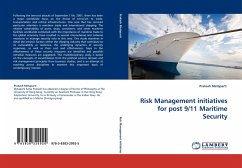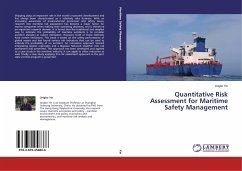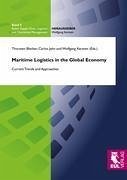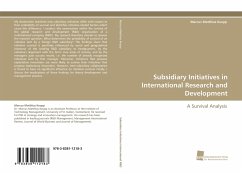
Risk Management initiatives for post 9/11 Maritime Security
Versandkostenfrei!
Versandfertig in 6-10 Tagen
52,99 €
inkl. MwSt.

PAYBACK Punkte
26 °P sammeln!
Following the terrorist attacks of September 11th, 2001, there has been a major worldwide focus on the threat of terrorism to trade, transportation and critical infrastructures. One area that has received particular attention is maritime trade and international shipping. The relative vulnerability of ports, ships, containers, and other maritime facilities worldwide combined with the importance of maritime trade to the global economy have resulted in several international and national measures to manage security risks in this area. This study examines in detail the intrinsic factors within the ...
Following the terrorist attacks of September 11th, 2001, there has been a major worldwide focus on the threat of terrorism to trade, transportation and critical infrastructures. One area that has received particular attention is maritime trade and international shipping. The relative vulnerability of ports, ships, containers, and other maritime facilities worldwide combined with the importance of maritime trade to the global economy have resulted in several international and national measures to manage security risks in this area. This study examines in detail the intrinsic factors within the shipping industry that contribute to its vulnerability or resilience, the underlying dynamics of security responses, as well as their cost and effectiveness. Gaps in the effectiveness of these security measures are identified and possible remedial measures are suggested. This multidisciplinary study is based on the concepts of securitization from the political science domain and risk management principles from business studies, and is an attempt at reaching across disciplines to examine this important topic of contemporary interest.












